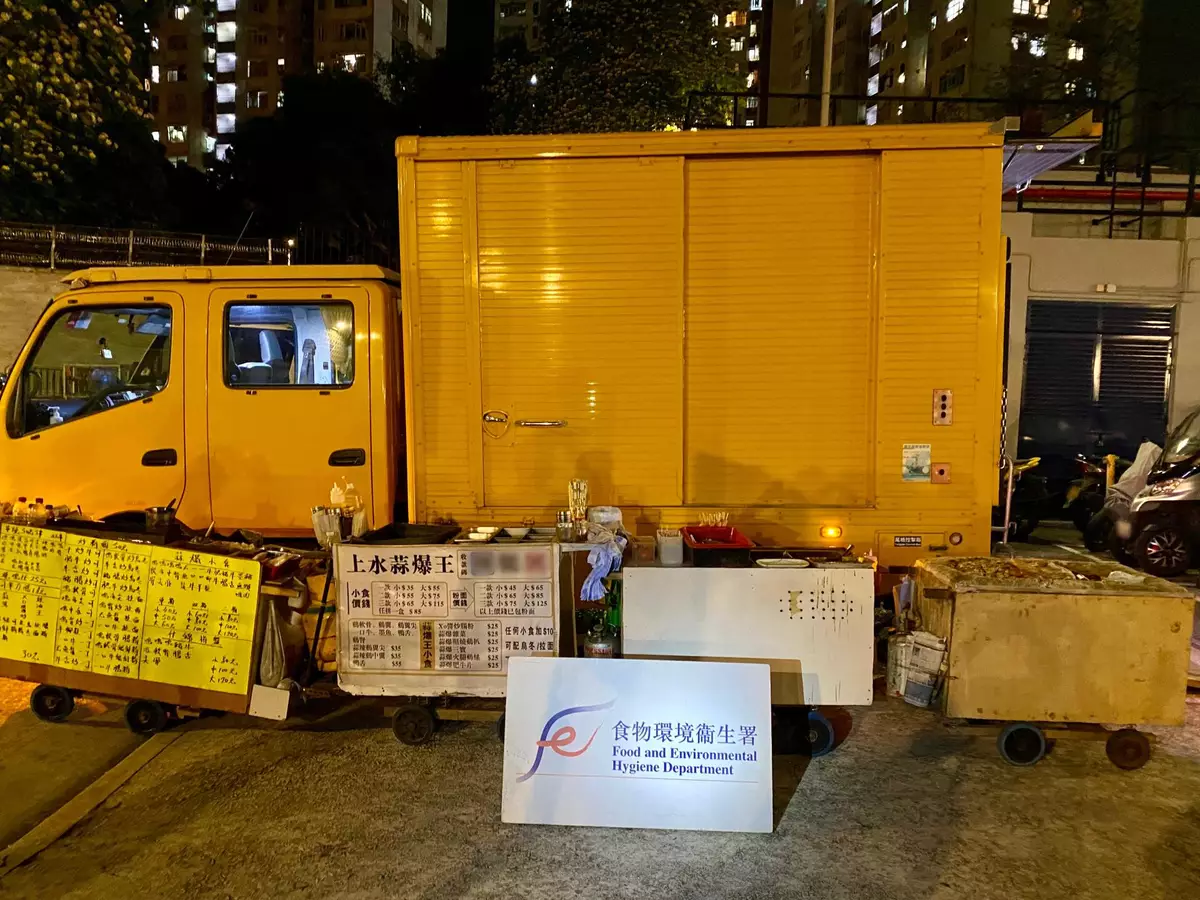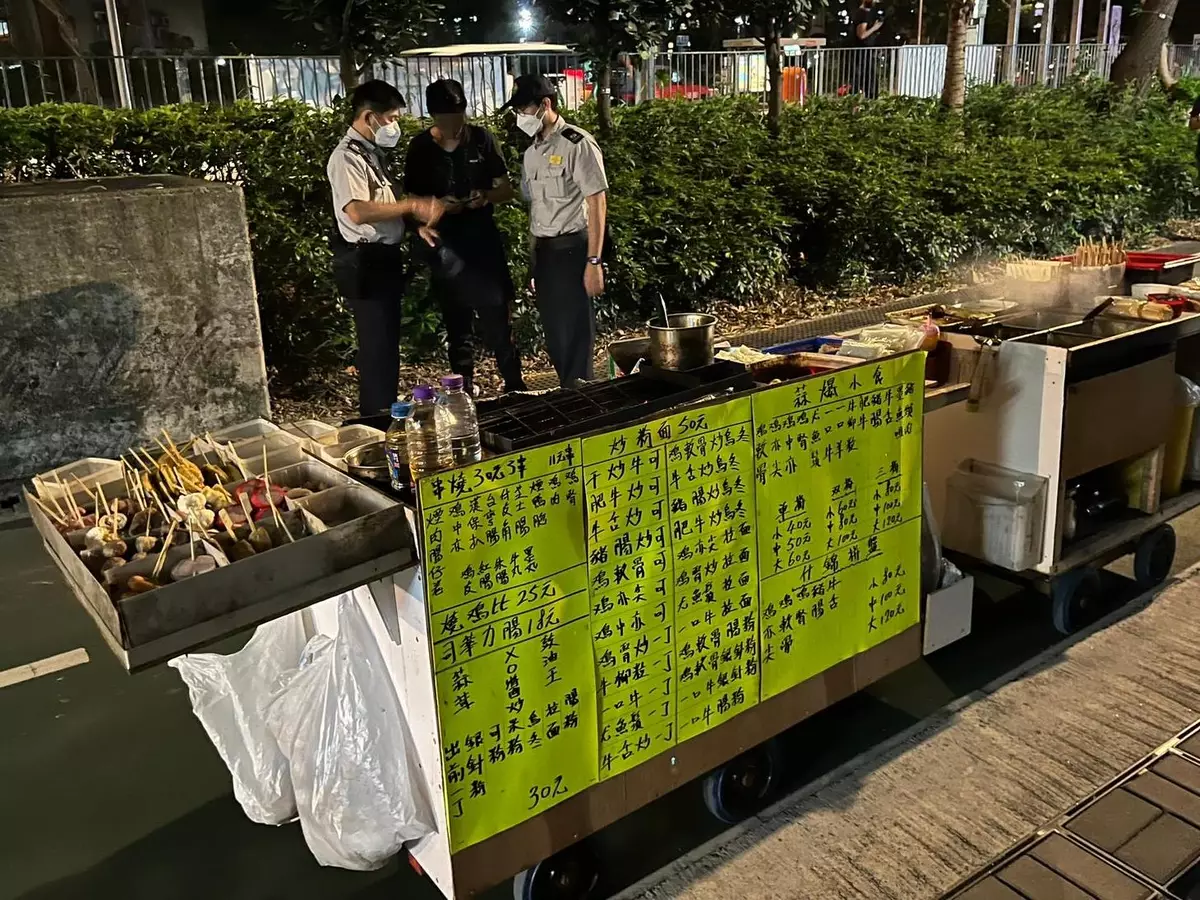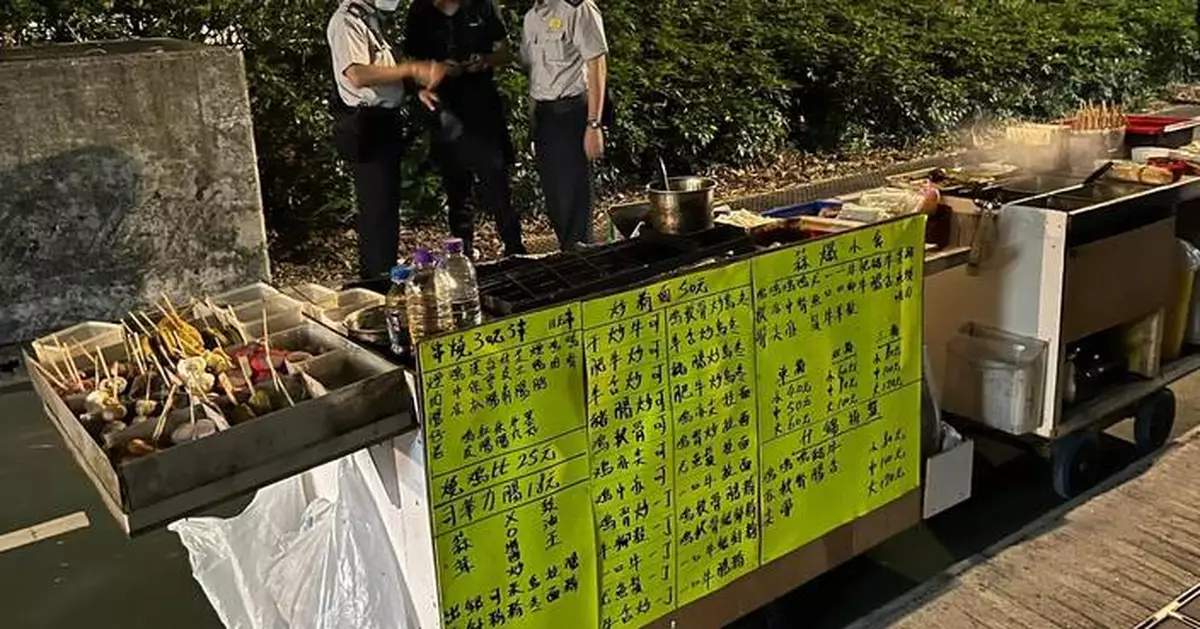Cracking down on unlicensed cooked food hawkers: fehd harnesses video evidence for stronger enforcement
A spokesman for the Food and Environmental Hygiene Department (FEHD) said today (April 18) that to enhance evidence collection efficiency and minimise safety risks to passers-by and law enforcement officers, the FEHD piloted a new enforcement strategy using video evidence collection in North District to effectively combat unlicensed cooked food hawking activities.
The FEHD conducted a pilot enforcement operation codenamed "Nighthawk" against suspected organised unlicensed cooked food hawking activities in the area of Choi Yuen Road near Po Shek Wu Estate Ancillary Facilities Block in Sheung Shui last night (April 17). Officers used video recording devices to document illegal acts and gather information on unlicensed cooked food hawkers there as evidence. Since 2023, the FEHD has received 19 complaints related to illegal hawking activities at the location. During the operation, the FEHD arrested four persons and initiated prosecution against them for illegal hawking and causing obstruction in a public place, as well as cooking or heating food for the purpose of hawking without a valid licence. Four cooked food trolleys with relevant equipment were seized, and about 20 kilograms of food involved were immediately destroyed.
The spokesman added that the new enforcement strategy would enable frontline staff to collect evidence more effectively, allowing enforcement officers to arrest hawkers based on the video evidence even after the offenders have left the scene. This approach could help avoid confrontations or chaotic situations at the scene, minimising risks to passers-by and law enforcement officers, while enhancing the effectiveness in curbing unlicensed cooked food hawking activities.
The spokesman emphasised that since the seized food trolleys were extremely dirty and the source of the seized food was unknown, prepared in substandard hygiene conditions, the food could easily be contaminated by unclean utensils and harmful microorganisms, posing a threat to food safety and public health.
According to the Public Health and Municipal Services Ordinance (Cap. 132), no person shall hawk in any street unless he or she holds a valid hawker licence issued by the FEHD. Offenders can be prosecuted and are liable to a maximum penalty of a fine of $5,000 and one month's imprisonment for a first conviction, and a fine of $10,000 and six months' imprisonment for a subsequent conviction. In addition, according to the Hawker Regulation (Cap. 132AI), no person shall, for the purpose of hawking, cook or heat any food or have in his or her possession any cooking stove or heating apparatus intended for cooking or heating food unless he or she holds a licence for operating a cooked food service. Offenders can be prosecuted and are liable to a maximum penalty of a fine of $5,000 and three months' imprisonment for a first conviction, and a fine of $10,000 and six months' imprisonment for a subsequent conviction. If unlicensed hawking activities obstruct passageways, law enforcement officers may institute additional prosecutions against offenders who cause obstruction by placing articles in public places under the Summary Offences Ordinance (Cap. 228). Offenders are liable to a fine of $25,000 or imprisonment for three months upon conviction.
The spokesman stressed that the FEHD will continue to combat unlicensed cooked food hawking activities to safeguard public health and food safety. The spokesman also reminded the public to pay attention to food safety, not to patronise unlicensed cooked food hawkers, and not to take food risks lightly. Given the satisfactory results of the pilot enforcement operation, the FEHD will consider applying the new enforcement strategy to other districts to combat unlicensed cooked food hawkers.

FEHD uses video recording for evidence collection to strengthen crackdown on unlicensed cooked food hawkers Source: HKSAR Government Press Releases

FEHD uses video recording for evidence collection to strengthen crackdown on unlicensed cooked food hawkers Source: HKSAR Government Press Releases










